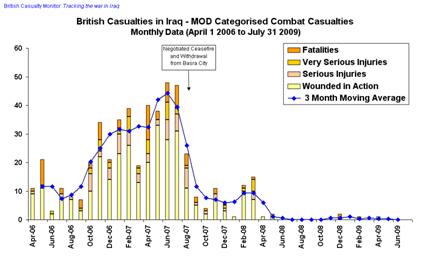While this blog focuses on a neutral assessment of issues around monitoring and recording the casualties war, it is, in the current circumstances, hard not to comment on other aspects of the Chilcot Report.
One of the most baffling findings of the committee was that the UK government was not, despite all the evidence to the contrary, involved in deliberate manipulation and miss-representation of intelligence in the run up to war. While there are probably many factors driving the committee's decision, a quick couple of searches of the inquiry web site provides some parts of the answer. OK, lets try Katherine Gun...
And here's the result for Valerie Plame...
However, Hollywood dares to tread where Sir John does not. Harrison Ford and Anthony Hopkins will be shortly be starring in Official Secrets, a film about Katherine Gun, who was a Mandarin translator for GCHQ in Cheltenham. The film describes what happened to her when she blew the whistle on the illegal activities undertaken by the British to try and manipulate the UN Security Council into endorsing the invasion.
And Fair Game, the story of US manipulation of information on nuclear weapons in the Niger 'yellow cake' scandal was already released in 2011 (starring Sean Penn and Naomi Watts, who played Valerie Plame). While in the later case the protagonists are American, President Bush stated in his state of the union speech in Jan 2003 that "The British government has learned
that Saddam Hussein recently sought significant quantities of uranium
from Africa." An accusation against Iraq that was proven to be false.
Why Sir John and his committee have chosen to ignore the clear evidence of British involvement in manipulating intelligence (as well as sexing it up) is something that may only emerge if Blair or others are put on trial. Unfortunately, the Chilcot Report has not delivered closure but raised additional questions over the extent and depth of establishment denial and cover up. Further and more robust action is required.
